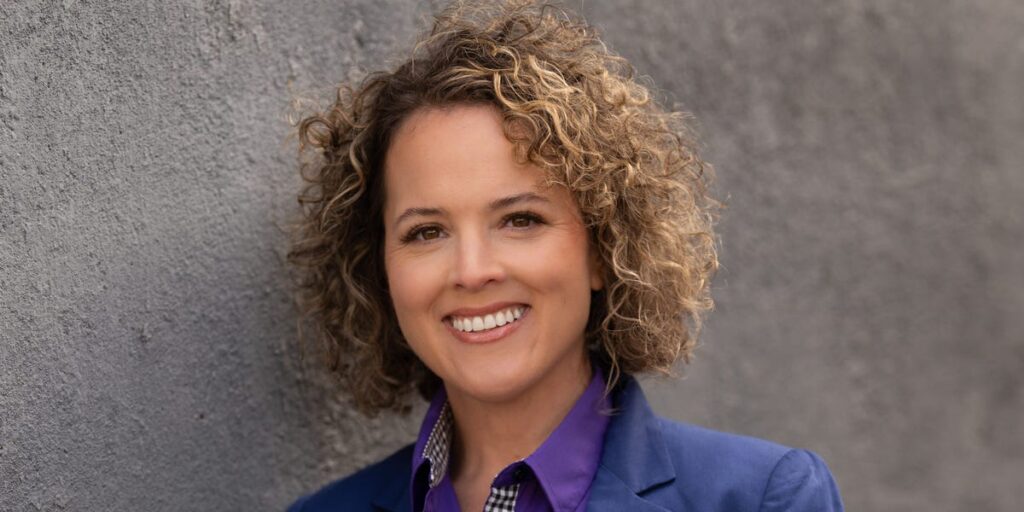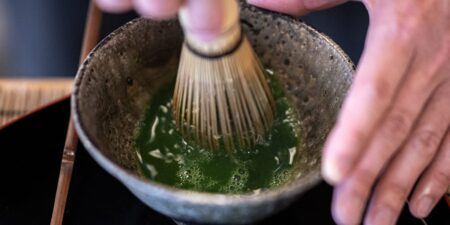Ashley Koff recently turned 52 and has been more focused than ever on eating right to stave off potential age-related cognitive decline since hitting the five-decade milestone.
“I’ve always taken care of my digestive health and I doubled down on that focus as a preventative for my brain,” Koff, a registered dietitian, told Business Insider. “Your brain is like a mini ecosystem of the whole body.”
Koff, who founded the Better Nutrition Program, is the author of the upcoming book “Your Best Shot” about understanding the hormones involved with weight management.
She said patterns of eating over time can make a bigger difference than any single superfood or dose of a supplement. Here are five simple swaps she’s made to her own diet for a healthier brain.
Balancing blood sugar to prevent crashes
For years, Koff practiced intermittent fasting by skipping breakfast to manage her changing hormones and help with weight loss.
About four years ago, she started wearing a glucose monitor. It revealed that her blood sugar had dramatic ups and downs during a busy morning fueled by coffee alone, leading to crashes and brain fog.
Gradually, she started adding more food to her mornings, including a variety of carb sources. Now, she starts the day with overnight oats and berries for gut-friendly fiber, and she’s added some snacks: faster-digesting carbs like mango and raw honey as quick fuel for a workout.
“If I am doing anything that’s at all physically demanding or even mentally demanding, I need a little bit of carbohydrate or my blood sugar goes too low,” Koff said.
She says it’s working. Her glucose monitor now shows a more stable blood sugar, and she has better energy and focus throughout the day.
Some research suggests keeping your blood sugar and insulin levels under control helps maintain cognitive health over time.
Eating the rainbow to protect cells from damage
Koff has always been a fan of veggies, but she started expanding her color palate after she hit 50.
Aiming to “eat the rainbow” and have multiple colors on your plate helps guarantee a more nutritionally complete meal. Different pigments in fruits and veggies correspond with the variety of nutrients they contain. Red tomatoes are rich in lycopene, a cancer-fighting nutrient, and there’s orange, anti-inflammatory curcumin in turmeric.
Koff is trying to eat more orange and yellow produce because she has a family history of macular degeneration and cognitive decline.
Foods with these colors help to protect cells from damage because they are high in compounds like lutein, part of a group of antioxidants called carotenoids.
“I’ve been really focused on those nutrients, and we probably can’t get enough,” she said.
Taking creatine for a brain boost
While supplements aren’t a quick fix for brain health, they can help make sure you’re getting the resources your body needs alongside a healthy diet, Koff said.
One supplement she takes regularly is creatine, a fitness supplement that mounting evidence suggests also boosts brain health.
Creatine, a combination of amino acids, helps provide the raw materials that your muscles and brain cells need for energy.
Koff first started using creatine about two years ago, initially for the muscle-building benefits as an endurance athlete, and continued for the brain health benefits.
She takes about 750 mg daily of creatine HCL, a format that absorbs more easily than the typically sold creatine monohydrate, for which a recommended dose is about five grams daily.
Energy-wise, she also has a daily espresso — an extra cognitive boost, as research suggests that coffee can protect the brain from aging.
Enjoying fish like sardines for omega-3s
Koff has been a fan of tinned fish since before it was cool.
In recent years, canned seafood has become a buzzy industry, powered in part by a collective obsession with getting enough protein, elevating the budget-friendly staple with premium brands that feature flashy art and fancy sauces.
Seafood, such as mackerel, sardines, and anchovies, is a good source of omega-3 fatty acids, which help protect the brain from inflammation. Fish is also a great source of protein for maintaining muscle, which helps promote longevity overall.
However, fish can also contain high levels of mercury and other toxins. Organizations like the EPA recommend sticking to about eight ounces (or two servings) per week. Smaller fish, such as sardines, tend to be lower in pollutants, and Koff said she looks for farmed fish with transparent labeling.
She knows it’s not for everyone.
“I have really not-average taste buds,” she said. “I’m never going to tell my patients to eat that if they won’t like it.”
If you’re looking to get more healthy fats but can’t get on board with the ‘dines, Koff also has a daily scoop of ground flax seeds, which are also rich in omega-3s — without the fishy flavor.
Avoiding alcohol
Bad news if you love happy hour — alcohol has major health risks for your whole body, including your brain.
Koff said she quit drinking at 48 because it was disrupting her otherwise-healthy diet, causing sleep problems, indigestion, and making it harder for her to burn fat.
“It felt like I’d always be washing my floor with dirty shoes if I include alcohol,” she said.
Read the full article here
















